#Information sciences
Text

3K notes
·
View notes
Text
i love when this book talks about “the emergence of google.”
it definitely hasn’t dated itself in 15 years
0 notes
Text
New Millipede!!! Sphaerobelum turcosa is a newly discovers species of pill millipede that was recently discovered in the Loei province of Thailand. A team of researchers were doing field work in the Phu Pha Lom Forest when they discovered fourteen of these brightly colored millipedes. Due to their stunning coloration these pill millipedes were nicknamed “The Jewel of The Forest”.

Pill millipedes have convergently evolved a body structure similar to that of isopods (aka roly polies) and have comparatively shorter bodies than other species of millipedes, and like roly polies they will roll themselves into a ball when they feel threatened.

The bright turquoise color of Sphaerobelum turcosa helps warn predators that they are poisonous and not to eat them. This millipede also has tan markings on its exoskeleton that form a mask-like marking that helps to scare off potential predators.

4K notes
·
View notes
Text
The majority of censorship is self-censorship

I'm on tour with my new novel The Bezzle! Catch me TONIGHT in SAN DIEGO (Feb 22, Mysterious Galaxy). After that, it's LA (Saturday night, with Adam Conover), Seattle (Monday, with Neal Stephenson), then Portland, Phoenix and more!

I know a lot of polymaths, but Ada Palmer takes the cake: brilliant science fiction writer, brilliant historian, brilliant librettist, brilliant singer, and then some:
https://pluralistic.net/2022/02/10/monopoly-begets-monopoly/#terra-ignota
Palmer is a friend and a colleague. In 2018, she, Adrian Johns and I collaborated on "Censorship, Information Control, & Information Revolutions from Printing Press to Internet," a series of grad seminars at the U Chicago History department (where Ada is a tenured prof, specializing in the Inquisition and Renaissance forbidden knowledge):
https://ifk.uchicago.edu/research/faculty-fellow-projects/censorship-information-control-information-revolutions-from-printing-press/
The project had its origins in a party game that Ada and I used to play at SF conventions: Ada would describe a way that the Inquisitions' censors attacked the printing press, and I'd find an extremely parallel maneuver from governments, the entertainment industry or other entities from the much more recent history of internet censorship battles.
With the seminars, we took it to the next level. Each 3h long session featured a roster of speakers from many disciplines, explaining everything from how encryption works to how white nationalists who were radicalized in Vietnam formed an armored-car robbery gang to finance modems and Apple ][+s to link up neo-Nazis across the USA.
We borrowed the structure of these sessions from science fiction conventions, home to a very specific kind of panel that doesn't always work, but when it does, it's fantastic. It was a natural choice: after all, Ada and I know each other through science fiction.
Even if you're not an sf person, you've probably heard of the Hugo Awards, the most prestigious awards in the field, voted on each year by attendees of the annual World Science Fiction Convention (Worldcon). And even if you're not an sf fan, you might have heard about a scandal involving the Hugo Awards, which were held last year in China, a first:
https://www.nbcnews.com/news/world/science-fiction-authors-excluded-hugo-awards-china-rcna139134
A little background: each year's Worldcon is run by a committee of volunteers. These volunteers put together bids to host the Worldcon, and canvass Worldcon attendees to vote in favor of their bid. For many years, a group of Chinese fans attempted to field a successful bid to host a Worldcon, and, eventually, they won.
At the time, there were many concerns: about traveling to a country with a poor human rights record and a reputation for censorship, and about the logistics of customary Worldcon attendees getting visas. During this debate, many international fans pointed to the poor human rights record in the USA (which has hosted the vast majority of Worldcons since their inception), and the absolute ghastly rigmarole the US government subjects many foreign visitors to when they seek visas to come to the US for conventions.
Whatever side of this debate you came down on, it couldn't be denied that the Chinese Worldcon rang a lot of alarm-bells. Communications were spotty, and then the con was unceremoniously rescheduled for months after the original scheduled date, without any good explanation. Rumors swirled of Chinese petty officials muscling their way into the con's administration.
But the real alarm bells started clanging after the Hugo Award ceremony. Normally, after the Hugos are given out, attendees are given paper handouts tallying the nominations and votes, and those numbers are also simultaneously published online. Technically, the Hugo committee has a grace period of some weeks before this data must be published, but at every Worldcon I've attended over the past 30+ years, I left the Hugos with a data-sheet in my hand.
Then, in early December, at the very last moment, the Hugo committee released its data – and all hell broke loose. Numerous, acclaimed works had been unilaterally "disqualified" from the ballot. Many of these were written by writers from the Chinese diaspora, but some works – like an episode of Neil Gaiman's Sandman – were seemingly unconnected to any national considerations.
Readers and writers erupted in outrage, demanding to know what had happened. The Hugo administrators – Americans and Canadians who'd volunteered in those roles for many years and were widely viewed as being members in good standing of the community – were either silent or responded with rude and insulting remarks. One thing they didn't do was explain themselves.
The absence of facts left a void that rumors and speculation rushed in to fill. Stories of Chinese official censorship swirled online, and along with them, a kind of I-told-you-so: China should never have been home to a Worldcon, the country's authoritarian national politics are fundamentally incompatible with a literary festival.
As the outrage mounted and the scandal breached from the confines of science fiction fans and writers to the wider world, more details kept emerging. A damning set of internal leaks revealed that it was those long-serving American and Canadian volunteers who decided to censor the ballot. They did so out of a vague sense that the Chinese state would visit some unspecified sanction on the con if politically unpalatable works appeared on the Hugo ballot. Incredibly, they even compiled clumsy dossiers on nominees, disqualifying one nominee out of a mistaken belief that he had once visited Tibet (it was actually Nepal).
There's no evidence that the Chinese state asked these people to do this. Likewise, it wasn't pressure from the Chinese state that caused them to throw out hundreds of ballots cast by Chinese fans, whom they believed were voting for a "slate" of works (it's not clear if this is the case, but slate voting is permitted under Hugo rules).
All this has raised many questions about the future of the Hugo Awards, and the status of the awards that were given in China. There's widespread concern that Chinese fans involved with the con may face state retaliation due to the negative press that these shenanigans stirred up.
But there's also a lot of questions about censorship, and the nature of both state and private censorship, and the relationship between the two. These are questions that Ada is extremely well-poised to answer; indeed, they're the subject of her book-in-progress, entitled Why We Censor: from the Inquisition to the Internet.
In a magisterial essay for Reactor, Palmer stakes out her central thesis: "The majority of censorship is self-censorship, but the majority of self-censorship is intentionally cultivated by an outside power":
https://reactormag.com/tools-for-thinking-about-censorship/
States – even very powerful states – that wish to censor lack the resources to accomplish totalizing censorship of the sort depicted in Nineteen Eighty-Four. They can't go from house to house, searching every nook and cranny for copies of forbidden literature. The only way to kill an idea is to stop people from expressing it in the first place. Convincing people to censor themselves is, "dollar for dollar and man-hour for man-hour, much cheaper and more impactful than anything else a censorious regime can do."
Ada invokes examples modern and ancient, including from her own area of specialty, the Inquisition and its treatment of Gailileo. The Inquistions didn't set out to silence Galileo. If that had been its objective, it could have just assassinated him. This was cheap, easy and reliable! Instead, the Inquisition persecuted Galileo, in a very high-profile manner, making him and his ideas far more famous.
But this isn't some early example of Inquisitorial Streisand Effect. The point of persecuting Galileo was to convince Descartes to self-censor, which he did. He took his manuscript back from the publisher and cut the sections the Inquisition was likely to find offensive. It wasn't just Descartes: "thousands of other major thinkers of the time wrote differently, spoke differently, chose different projects, and passed different ideas on to the next century because they self-censored after the Galileo trial."
This is direct self-censorship, where people are frightened into silencing themselves. But there's another form of censorship, which Ada calls "middlemen censorship." That's when someone other than the government censors a work because they fear what the government would do if they didn't. Think of Scholastic's cowardly decision to pull inclusive, LGBTQ books out of its book fair selections even though no one had ordered them to do so:
https://www.nytimes.com/2023/05/06/books/scholastic-book-racism-maggie-tokuda-hall.html
This is a form of censorship outsourcing, and it "multiplies the manpower of a censorship system by the number of individuals within its power." The censoring body doesn't need to hire people to search everyone's houses for offensive books – it can frighten editors, publishers, distributors, booksellers and librarians into suppressing the books in the first place.
This outsourcing blurs the line between state and private surveillance. Think about comics. After a series of high-profile Congressional hearings about the supposed danger of comics to impressionable young minds, the comics industry undertook a regime of self-censorship, through which the private Comics Code Authority would vet comings for "dangerous" content before allowing its seal of approval to appear on the comics' covers. Distributors and retailers refused to carry books without a CCA stamp, so publishers refused to publish books unless they could get a CCA stamp.
The CCA was unaccountable, capricious – and racist. By the 60s and 70s, it became clear that comic about Black characters were subjected to much tighter scrutiny than comics featuring white heroes. The CCA would reject "a drop of sweat on the forehead of a Black astronaut as 'too graphic' since it 'could be mistaken for blood.'" Every comic that got sent back by the CCA meant long, brutal reworkings by writers and illustrators to get them past the censors.
The US government never censored heroes like Black Panther, but the chain of events that created the CCA "middleman censors" made sure that Black Panther appeared in far fewer comics starring Marvel's most prominent Black character. An analysis of censorship that tries to draw a line between private and public censorship would say that the government played no role in Black Panther's banishment to obscurity – but without Congressional action, Black Panther would never have faced censorship.
This is why attempts to cleanly divide public and private censorship always break down. Many people will tell you that when Twitter or Facebook blocks content they disagree with, that's not censorship, since censorship is government action, and these are private actors. What they mean is that Twitter and Facebook censorship doesn't violate the First Amendment, but it's perfectly possible to infringe on free speech without violating the US Constitution. What's more, if the government fails to prevent monopolization of our speech forums – like social media – and also declines to offer its own public speech forums that are bound to respect the First Amendment, we can end up with government choices that produce an environment in which some ideas are suppressed wherever they might find an audience – all without violating the Constitution:
https://locusmag.com/2020/01/cory-doctorow-inaction-is-a-form-of-action/
The great censorious regimes of the past – the USSR, the Inquisition – left behind vast troves of bureaucratic records, and these records are full of complaints about the censors' lack of resources. They didn't have the manpower, the office space, the money or the power to erase the ideas they were ordered to suppress. As Ada notes, "In the period that Spain’s Inquisition was wildly out of Rome’s control, the Roman Inquisition even printed manuals to guide its Inquisitors on how to bluff their way through pretending they were on top of what Spain was doing!"
Censors have always done – and still do – their work not by wielding power, but by projecting it. Even the most powerful state actors are not powerful enough to truly censor, in the sense of confiscating every work expressing an idea and punishing everyone who creates such a work. Instead, when they rely on self-censorship, both by individuals and by intermediaries. When censors act to block one work and not another, or when they punish one transgressor while another is free to speak, it's tempting to think that they are following some arcane ruleset that defines when enforcement is strict and when it's weak. But the truth is, they censor erratically because they are too weak to censor comprehensively.
Spectacular acts of censorship and punishment are a performance, "to change the way people act and think." Censors "seek out actions that can cause the maximum number of people to notice and feel their presence, with a minimum of expense and manpower."
The censor can only succeed by convincing us to do their work for them. That's why drawing a line between state censorship and private censorship is such a misleading exercise. Censorship is, and always has been, a public-private partnership.

If you'd like an essay-formatted version of this post to read or share, here's a link to it on pluralistic.net, my surveillance-free, ad-free, tracker-free blog:
https://pluralistic.net/2024/02/22/self-censorship/#hugos
#pluralistic#ada palmer#worldcon#hugos#china#science fiction#fanac#publishing#censorship#systems of information control during information revolutions#scholarship
2K notes
·
View notes
Text
A lesson on the greenhouse effect; Dr. Carl Sagan testified before Congress in 1985 on climate change l carlsagandotcom/full vid
#climate change#greenhouse effect#earth#climate crisis#environment#carl sagan#informative#science#planets#greenhouse gases#global warming
1K notes
·
View notes
Link
More than 40 leading scientists have resigned en masse from the editorial board of a top science journal in protest at what they describe as the “greed” of publishing giant Elsevier.
The entire academic board of the journal Neuroimage, including professors from Oxford University, King’s College London and Cardiff University resigned after Elsevier refused to reduce publication charges.
Academics around the world have applauded what many hope is the start of a rebellion against the huge profit margins in academic publishing, which outstrip those made by Apple, Google and Amazon.
Neuroimage, the leading publication globally for brain-imaging research, is one of many journals that are now “open access” rather than sitting behind a subscription paywall. But its charges to authors reflect its prestige, and academics now pay over £2,700 for a research paper to be published. The former editors say this is “unethical” and bears no relation to the costs involved.
Professor Chris Chambers, head of brain stimulation at Cardiff University and one of the resigning team, said: “Elsevier preys on the academic community, claiming huge profits while adding little value to science.”
He has urged fellow scientists to turn their backs on the Elsevier journal and submit papers to a nonprofit open-access journal which the team is setting up instead.
He told the Observer: “All Elsevier cares about is money and this will cost them a lot of money. They just got too greedy. The academic community can withdraw our consent to be exploited at any time. That time is now.”
Elsevier, a Dutch company that claims to publish 25% of the world’s scientific papers, reported a 10% increase in its revenue to £2.9bn last year. But it’s the profit margins, nearing 40%, according to its 2019 accounts, which anger academics most. The big scientific publishers keep costs low because academics write up their research – typically funded by charities and the public purse – for free. They “peer review” each other’s work to verify it is worth publishing for free, and academic editors collate it for free or for a small stipend. Academics are then often charged thousands of pounds to have their work published in open-access journals, or universities will pay very high subscription charges.
6K notes
·
View notes
Text
Feeling like the ultimate nerd niche right now. I’m studying information science, specifically cataloguing, while in a library. Immersive experience. Like a 4D movie.
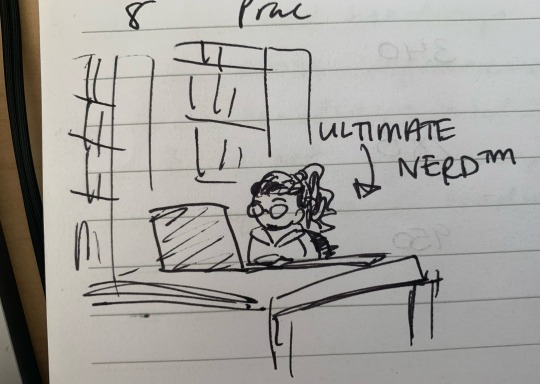
Self-portrait on Lined Notebook Paper, c. 2023
#ren rambles#library#libraries#information science#library and information science#cataloguing#my art#ren doodles#doodle#doodling
4K notes
·
View notes
Text
i'm a scientist and i went to a talk where they discussed... basically psychosurgery for treating mental illness? putting probes in your brain that make electrical impulses. and those electrical impulses can help manage spikes of anxiety. you get a bluetooth controller for it to manage stuff yourself, but someone else ALSO gets the control--your therapist.
and genuinely, not joking, the tool that your therapist uses to help you with it is just called the master controller.
and to test if it's working? they stimulate it in a way that makes you smile involuntarily.
okay now imagine how i felt like listening to all of that. if you answered "way too horny" you were correct
EDIT:
wow i really need y'all to read up on science before you start making assumptions about stuff LMAO
(putting on a scientist hat) hi everyone. please read about Deep Brain Stimulation, which was approved by the FDA in 2009 and has has 400 surgeries since then with generally positive effects. it's largely cost-prohibitive despite its useful effects for people suffering from treatment-resistant mental illness and if someone wanted to do What You Are Assuming They Would Do then you are unaware of the way that medical treatment and research is currently developed and i think you could maybe look into that instead of fearmongering on a post clearly written on a HORNY BLOG!!!!
#swirlygigg speaks#will i write a story about it? maybe?#edit: good lord people are scared in the notes. please do not get your science information from me on THIS BLOG
2K notes
·
View notes
Text
i know someone must have done this already but--
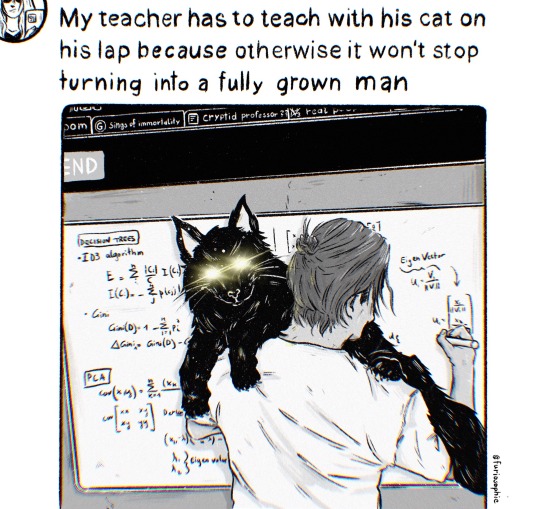
based on this post by @chaotic-kass
#dreamling#dream of the endless#hob gadling#meowrpheus#cat!dream#yes i made hob a computer science professor#love the english and history professor headcanons#but also i think he'd make a real good computer science professor#bc in some roundabout way the progress the internet brought is out equivalent of the printing press#also i'm sure he would have very quickly realized that the thing that gives everyone access to every information at all times#is sth he should maybe keep an eye on#thus why not get into programming get ahead of the problem#with the potential to make a lot of money pretty anonymous too#keep his digital footprint in check#forge documents and images#you get it#anyway#id in alt text#soph arts
7K notes
·
View notes
Text
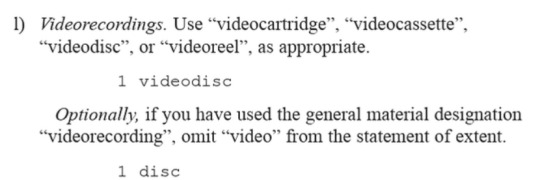
i would love to read about resource description from within the last decade, not a full twenty years ago
#cloudy rambles#college things.#liron's grad school adventures#library and information sciences#information sciences#this book is from 2002. updated 2004.
1 note
·
View note
Text
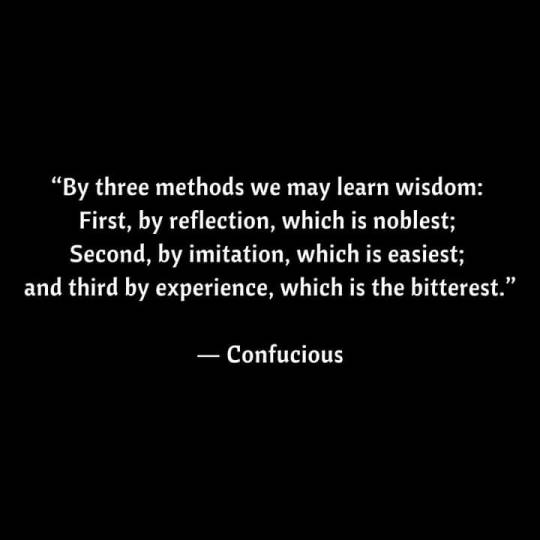
#inspirational#nature#beautiful#natural#sympathy#empathy#caring#love#loving#wisdom#information#learning#fyi#history#science#the more you know
424 notes
·
View notes
Text
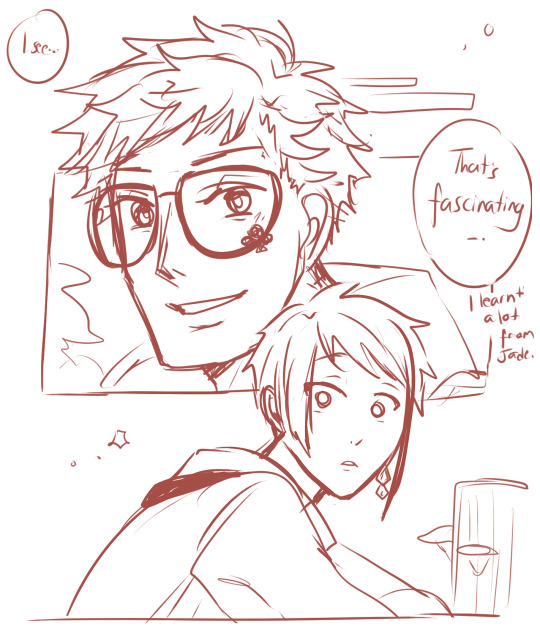

jade who got heartstruck by someone who listens,
and trey who generally takes interest on really listening to what people have to say, about things he doesn't know yet
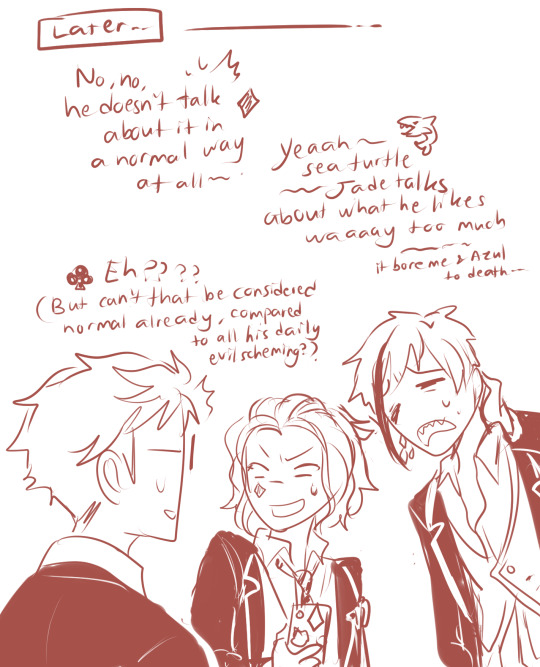

#referring to outdoor wear trey's lines who said--#People get to research whatever they want in the Science Club which means I get to hear about all sorts of fascinating stuff#Rook lectured me on proper hiking technique before we left. His tips have been pretty helpful—I haven't taken a spill yet#he listens#twisted wonderland#twst#treyjade#trey clover#jade leech#cater diamond#floyd leech#and also i just watched jade's outdoor wear vignette who mentored cater who wanted to run away already fshdshd#trey might do things minimally#but he seems to be packful of information about handling any possible situation or encounter against random things#that he obviously ; doesn't show#unless for desperate measure
520 notes
·
View notes